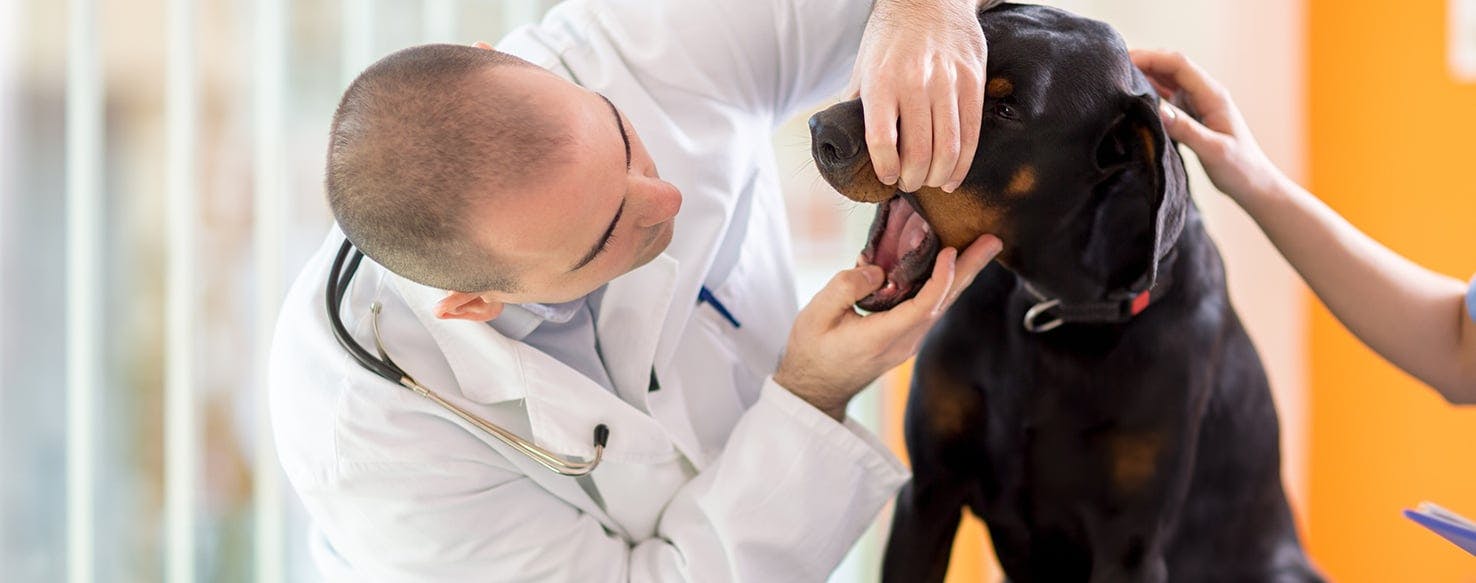Updated: 9/21/2021
You know the feeling: your throat begins to itch, swallowing becomes a hassle, and your body starts to ache and shiver. Throat infections go hand in hand with most colds. It's not even uncommon to get more than one a year! They can easily jump from person to person and can be from viruses or bacteria. We know that we don't enjoy throat infections, but do our canine companions suffer from the same ailment? Can your dog get a throat infection?
Can Dogs Get Throat Infections?
Just like people, dogs can most definitely get throat infections from viruses or bacteria. This illness causes our pet pooches much discomfort, too. It's pretty unlikely that your throat infection could jump over to your pupper, though. Most viruses are species-specific, but if you're worried, talk to your vet. Unfortunately for our four-legged friends, a throat infection can also be the sign of a more serious illness. So if your dog is showing signs of a throat infection, don't write it off as no big deal.
Does My Dog Have a Throat Infection?
This issue comes with a whole bunch of signs, making it pretty easy to spot. It's always best to let a vet make the final call, though, just in case a more serious problem is present.
If your pup's throat is infected, the tonsils will swell and swallowing will become difficult. You may notice lots of extra drool, and your pooch may even throw up. Some infections also come with a fever and a dry cough.
Bacteria, viruses, foreign objects, and even cancer can be behind your fur-baby’s sore throat. Other health problems can actually change the composition of your dog's saliva, which can then turn into a throat infection.
Because there are lots of different problems that lead to throat infections in dogs, your vet will probably want to run a few different tests to pinpoint your pup's issue. Blood tests, x-rays, cultures, and exploration of the throat with a little camera may all be used to figure out what's wrong with your four-legged friend.
If you'd like to learn more about throat infections in our canine friends, check out:
Pharyngitis in Dogs.
How Do I Treat My Dog's Throat Infection?
So you know for sure that your dog has an infected throat. Now what? Depending on the cause, there may be lots of different ways to treat the problem.
Viruses often run their course and leave, but boosting your dog's fluids and immune system can help quicken the process. If a type of bacteria is the culprit, antibiotics are in order. Your pooch may require surgery if something is stuck in their throat, or if cancer is causing the infection.
Most dogs make a speedy recovery from a throat infection. If your pup has been diagnosed with cancer, the road to recovery may be quite a bit longer, although some dogs do make it.
How are Throat Infections Similar in Dogs and Humans?
The irritation that an infection in the throat causes is pretty standard no matter your species. Main similarities include:
-
Difficulty swallowing
-
Swollen tonsils
-
Coughing
-
Vomiting
-
Loss of voice
How are Throat Infections Different in Dogs and Humans?
There are a few minor differences in the nature of throat infections in dogs and their owners. The main ones to note are:
-
Severity - a throat infection in a dog is more often from a serious problem than human throat infections are
-
Injury - dogs have a tendency to chew on a lot of non-food items, injuring their throat and resulting in infection
Case Study
Keep an eye on your beloved canine when they are munching away on treats or other items. One poor pup started licking and swallowing constantly after nibbling away on a bully stick. Most likely, a portion of the treat got lodged in her esophagus. To prevent an infection from starting, her owner was told to give the dog some petroleum jelly, and to keep her hydrated If the dog had begun to bloat, an emergency trip to the vet would have been needed. Thankfully, with fast action, no infection developed and the pooch returned to her normal self.


